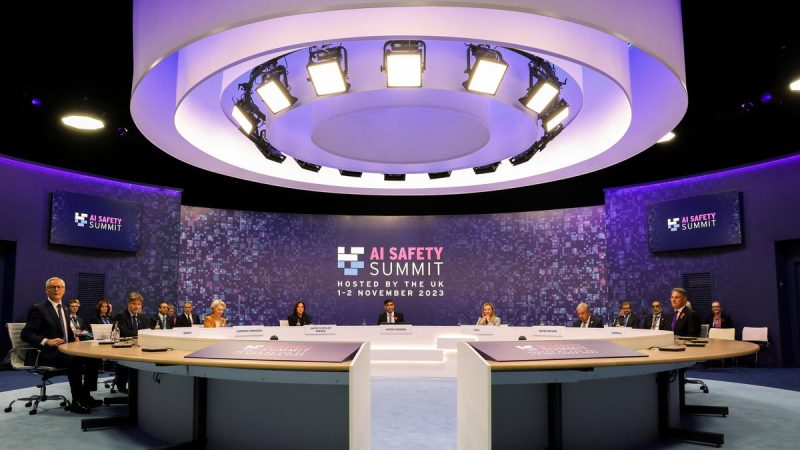European nations continue to jockey for leadership on artificial intelligence (AI), with Paris announcing it will host the next safety summit shortly after Britain hosted the first one.
‘The first edition of the Artificial Intelligence Security Summit, organized by the United Kingdom, provides an opportunity to develop international cooperation in the field of security, a crucial issue for the years to come. It was, therefore, natural for France to host the second edition of this summit,’ French Minister Delegate for the Digital Economy Jean-Noël Barrot said in a press release.
The future of AI remains up for grabs, with many nations trying to position themselves at the forefront of the race. Britain most explicitly has made its intentions clear with multiple and escalating pledges of hundreds of millions of dollars dedicated to research and development.
Barrot claimed that France is ‘a European leader’ in AI development. French Finance Minister Bruno Le Maire noted several important initiatives, including AI ethics, that France has launched, as well as the country’s own €500 million (around $534 million) pledge towards supporting ‘global AI players.’
‘Artificial intelligence is a tremendous lever for innovation and progress, and we want Europe to take full advantage of it,’ le Maire said in the same press release. ‘However, certain developments and uses of AI pose security risks, and international cooperation is the best way of dealing with them.’
The first summit was held in Britain at Bletchley Park – the birthplace of the computing machine, known as the Enigma Machine, as part of Alan Turing’s research and work to decode Germany’s messages during World War II.
The summit hosted world leaders and technology experts, including ChatGPT maker OpenAI’s CEO Sam Altman and social media platform X CEO Elon Musk, who launched his own AI model named ‘Grok,’ a seeming reference to Robert A. Heinlein’s science fiction novel ‘Stranger in a Strange Land.’
Britain spearheaded the Bletchley Declaration, which 28 countries including China and the U.S. signed: The agreement aims to provide a standard of safety and cooperation between participants to ensure AI tech does not become dangerous.
Brussels hosted a one-day summit last week that sought to ‘find answers to many of the questions around global AI regulatory cooperation’ following the Bletchley summit.
‘AI is a global challenge that doesn’t recognize borders,’ Ireland’s Minister for Enterprise, Trade and Employment Simon Coveney said during his keynote address at the International AI Summit 2023 organized by Euronews.
‘The EU can’t do it alone,’ he stressed. ‘It must build an alliance and it must at least try to reach a global consensus.’
Experts noted that the discussion and struggle for AI dominance rests currently in a split between the West and China, which has wanted ‘a seat at the AI table… for years,’ according to Rebecca Arcesati, a lead analyst at the Mercator Institute for China Studies.
Matt Sheehan from the Carnegie Endowment for International Peace theorized that ‘cooperation on AI is very much going to be shaped by the West’s geopolitical relationship with China.’
France did not specify when the summit would occur, but leaders agreed to a follow-up summit during sideline discussions in Bletchley Park. Le Maire’s office stressed that they will remain in line with the overall European Union strategy for the governance of AI.

